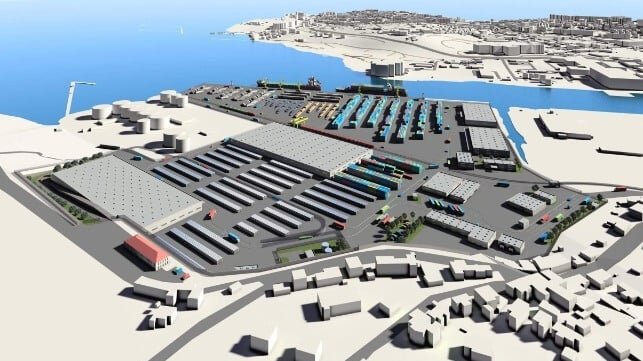Hungary’s Quest for Seaport Access Nears Completion with Trieste Port Project
Landlocked Hungary’s long-standing ambition to secure access to the sea is finally coming to fruition as construction commences on a new seaport in Trieste, Italy. Situated 140 miles away from Hungary’s border, this development marks a significant milestone in Hungary’s efforts to establish a strategic maritime gateway.
The groundbreaking ceremony for the Trieste Port project was attended by Hungarian Deputy Foreign Minister Levente Magyar and Italian Deputy Minister for Infrastructure, Edoardo Rixi. This joint initiative underscores the collaborative efforts between the two nations to bolster trade and connectivity.
Initiated in 2019 following Hungary’s acquisition of an 80-acre seafront site in Trieste, the port project entails the construction of a 250-meter quay wall in its first phase, with plans for future expansion to a total of 650 meters of coastline on the Adriatic Sea. Adria Port Zrt., a Hungarian state-owned company, is spearheading the development of this $209 million facility, slated for completion by 2028.
With a projected capacity of 78,000 TEU of cargo annually, the Trieste Port will play a pivotal role in enhancing Hungary’s export capabilities and connectivity to global markets. The inclusion of a logistics center at the site will further streamline the movement of goods, reinforcing Trieste’s strategic significance as a key maritime hub.
Commenting on the port project, Levente Magyar emphasized the importance of sea access for Hungary’s economic growth, stating, “Hungary’s extensive exports necessitate reliable sea connections to facilitate seamless trade operations. By establishing our own seaport capacity, we aim to reduce dependency on external entities and strengthen our position in the global supply chain.”
The historical context of Hungary’s landlocked status dates back to the aftermath of World War I, when the country ceded its coastline as part of the Trianon Treaty in 1920. Since then, Hungary has actively pursued partnerships with coastal nations to secure maritime access and foster economic cooperation.
In a recent development, Hungarian Minister for National Economy Márton Nagy engaged in discussions with Bulgarian President Rumen Radev to enhance economic ties between the two countries. The collaboration encompasses agreements in the transport sector, paving the way for a strategic logistics corridor linking Hungarian businesses with Bulgarian ports and free zones in the Black Sea.
Moreover, Hungary’s partnership with Bulgaria holds strategic significance for energy security, as Bulgaria serves as a vital transit route for natural gas supplies from Russia, Turkey, and Azerbaijan. This mutual cooperation underscores the mutual benefits of regional connectivity and trade facilitation.

